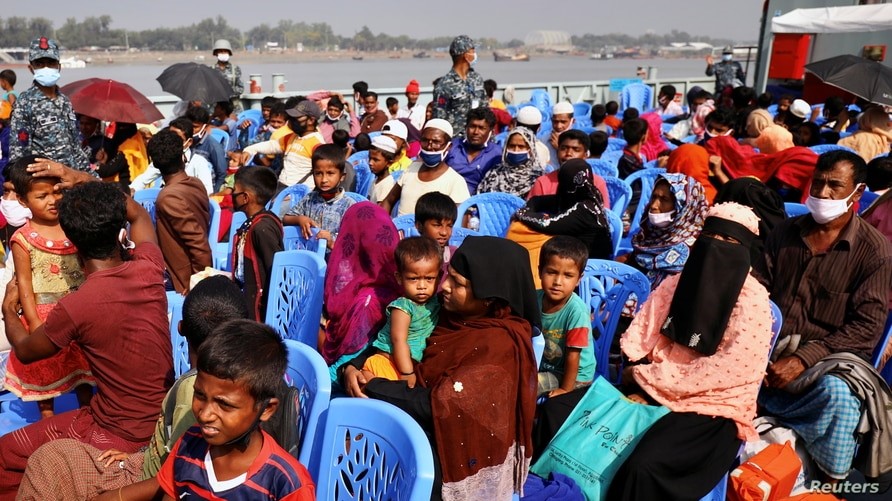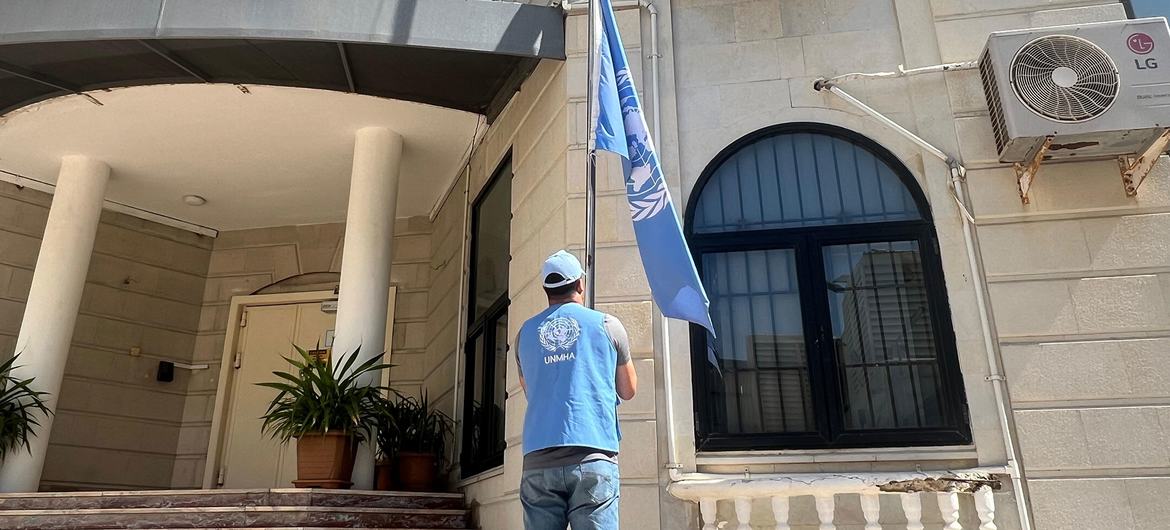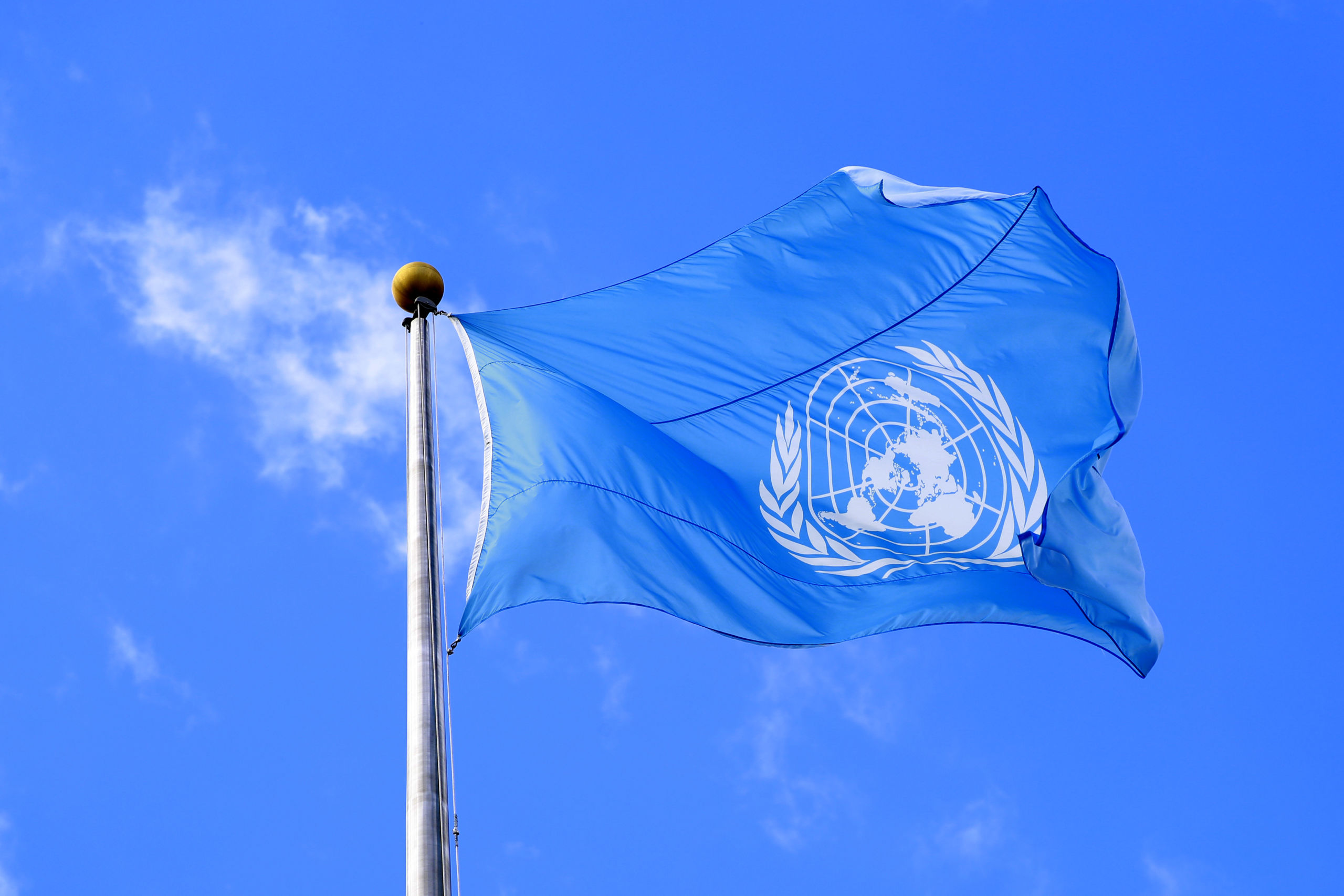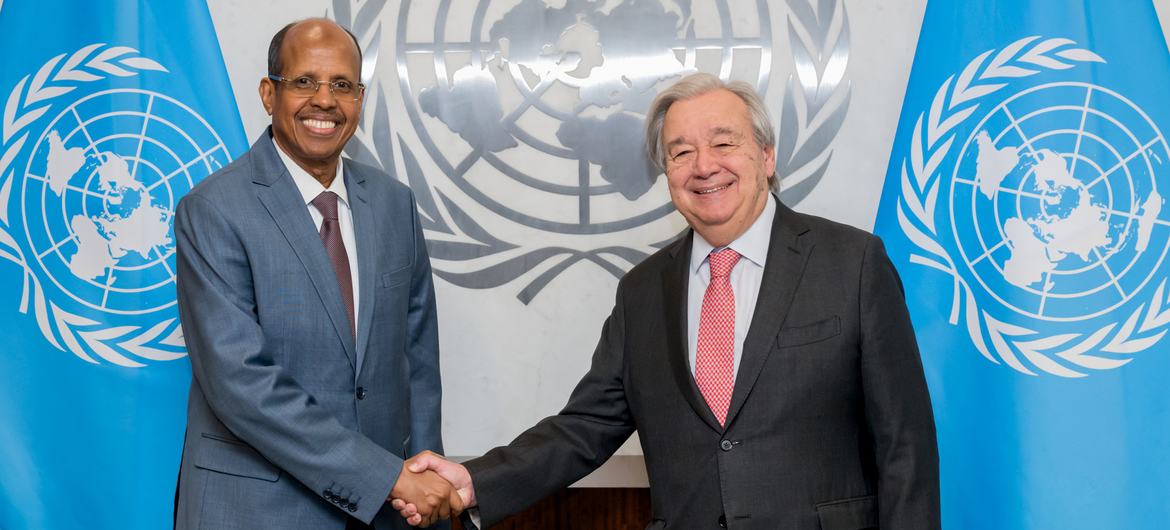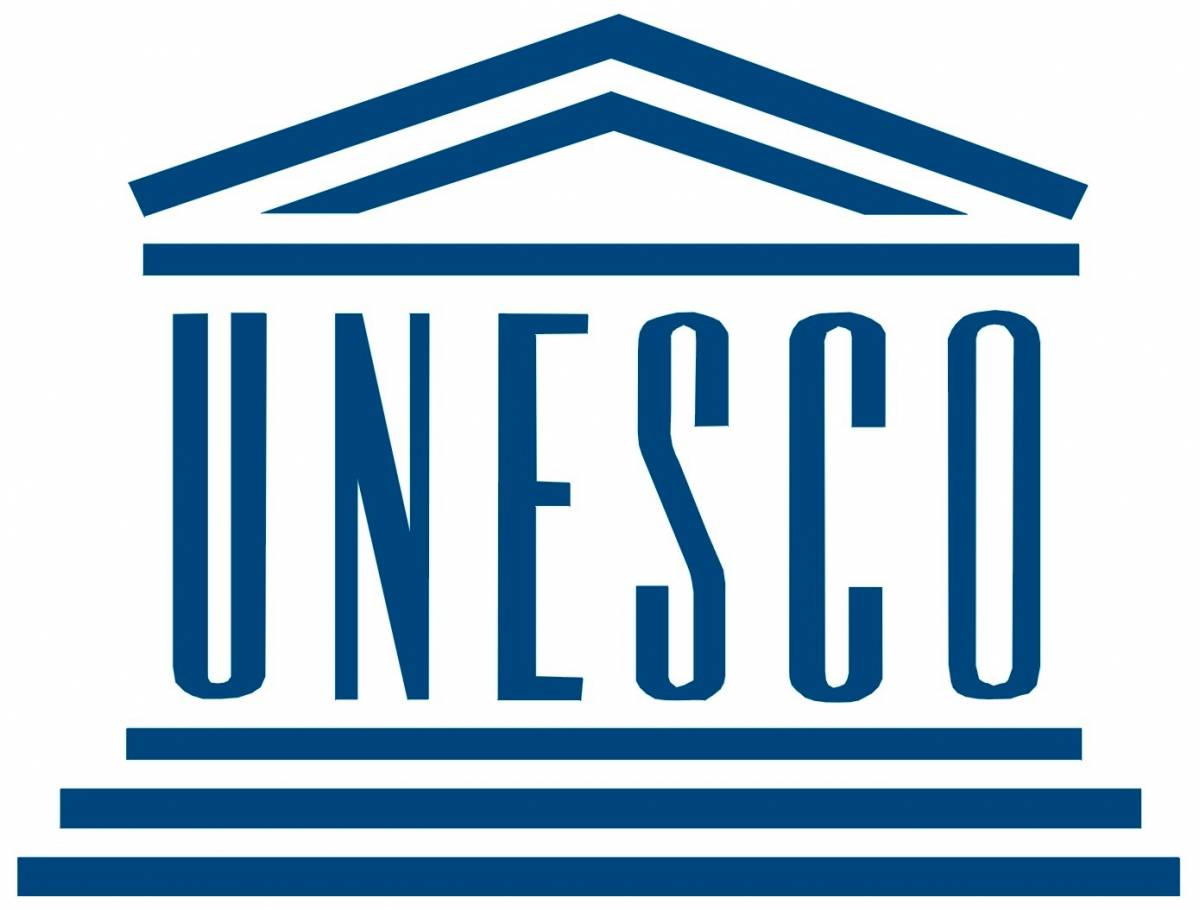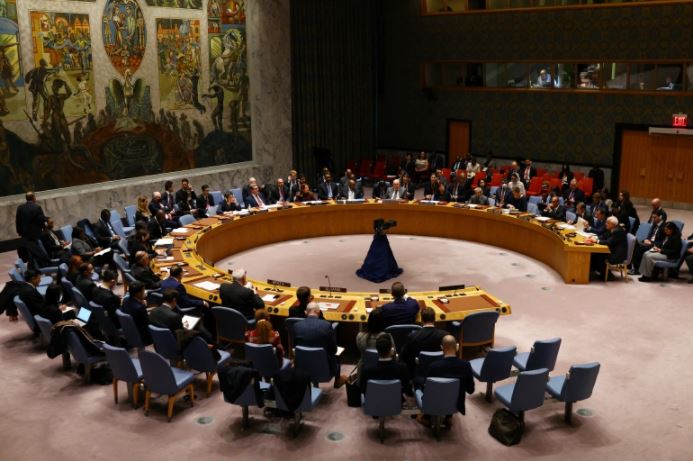UNITAR/NCD/THE TIME TO ACT IS NOW …

The Defeat-NCD Partnership is a practical response to the widespread call for action on non-communicable diseases/NCD.
Geneva, Switzerland, 25 May 2021 – The President of the 74th World Health Assembly and Minister of Health, Royal Government of Bhutan, Ms. Dechen Wangmo visited the Defeat-NCD Partnership’s office at the United Nations Institute for Training and Research (UNITAR) in Geneva today to set the tone at a high-level panel discussion aimed at tackling the twin challenges of COVID-19 and non-communicable diseases (NCDs). “I understand that time has passed for mere statements and rhetoric in addressing the Sustainable Development Goals (SDGs) of universal access to health”, she said. “It is time to act now”.
Her call to action was echoed and practical engagements were highlighted by the President of the Islamic Development Bank (IsDB), Dr. Bandar Hajjar. “On 26 April 2021, IsDB, UNITAR, and the Defeat-NCD Partnership signed an agreement and joint action plan to enhance national capacities and scale up community-level action to screen, detect, and improve care for NCD patients; support diagnostics; and provide medical devices to low-resource IsDB member countries, including through our public, private philanthropic, and people partnership model to de-risk investment and fund associated projects”.
The opening remarks for the session were delivered by Mr. Nikhil Seth, United Nations Assistant Secretary-General and Executive Director of UNITAR. “The Defeat-NCD Partnership at UNITAR has initiated capacity building initiatives in Myanmar, Rwanda, Gambia, and we are scaling up to support India, Ecuador, Bhutan, Nepal, and the Caribbean region to develop multisectoral actions plans to reduce the impact of NCDs on society”. Reflecting on the huge unmet needs, he added, “We have launched The Defeat-NCD Marketplace to provide quality assured, fairly priced NCD drugs and diagnostics to low- and middle-income countries to overcome the gaps between demand and supply”.
“There will be no Universal Health Coverage without NCDs”, said Dr. Bente Mikkelsen, Director, Department of Noncommunicable Diseases, WHO. She highlighted the alarming impact of COVID-19 on the continuity of service delivery as well as the continued supply of essential medicines, adding to the existing shortfalls seen prior to the pandemic. “The Defeat-NCD Partnership Marketplace fits very well with WHO’s work and approach on NCDs, namely addressing the prequalification and international procurement mechanisms, increased competition on quality-assured medicines, pooled demand, developing markets, and creating reliable payment and financial management mechanisms. The Marketplace fits into the overall architecture which we now collectively need to focus on, and we look to it with great interest”.
The interventions made by the panelists highlighted the burden faced by all countries, especially low- and middle-income countries, in the face of COVID-19 and NCDs. The global spend on the COVID-19 response is 2.8 times more than what is projected to be required to achieve all health-related Sustainable Development Goals over the next ten years. Nevertheless, more than 3 million people have died due to COVID-19, and this number continues to increase.
Dr. Harsh Vardhan, Minister of Health and Family Welfare, Government of India, explained the challenge of addressing both the COVID-19 pandemic and underlying NCDs and commended The Defeat-NCD Partnership’s call to action for providing an opportunity for stakeholders like the World Bank, the Asian Development Bank, and national governments to come together and act. “India is among the first countries to launch a national multisectoral action plan to reduce non-communicable disease mortalities,” he said. “India is committed to team up with the Defeat NCD Partnership to reach SDG 3.4 of cutting NCD premature mortalities by a third and is happy to be joining the governing mechanism of the Partnership”.
351 participants joined the United Nations Assistant Secretary-General and Executive Director of UNITAR, and the Chief Executive Officer of The Defeat-NCD Partnership in an interactive and stimulating panel discussion with four health ministers from India, Bhutan, Rwanda, and Gambia, and the Director of Public Health Department within Qatar’s Ministry of Public Health, along with the Special Envoy of the WHO Director-General on COVID-19, the President of the Islamic Development Bank, senior representatives from the World Bank, Asian Development Bank, WHO, and the President of Emerging Markets at Viatris.
The new public commitments to support global efforts to tackle NCDs were made as new research by The Defeat-NCD Partnership and the Economist Intelligence Unit highlights the urgent need to tackle premature NCD mortality if it is to win the battle against COVID-19. “For every 10% increase in underlying NCD mortality rates we see a 20% increase in COVID-19 case fatalities,” said Praveen Pardeshi, Programme Coordinator for Global Scale-up at The Defeat-NCD Partnership.
The urgency of the issue was further highlighted by Dr. David Nabarro, Co-Director of the Institute of Global Health Innovation at Imperial College London, Strategic Director of 4SD, and Special Envoy of the WHO Director-General on COVID-19. “Diseases such as COVID-19 reveal and exploit existing vulnerabilities in society such as poverty and inequity,” he said. “One of these vulnerabilities is the prevalence of non-communicable diseases.”
Dr Daniel Ngamije, Minister of Health, Government of Rwanda, responded to today’s call to action by highlighting the main lessons learned from Rwanda’s response to the Pandemic. “There is a need to build a strong, resilient health system which can resist disruption of key health services during a pandemic and can guarantee continuity of care, especially for NCDs. Policymakers have seen the importance of having a strong health system and we should use this momentum to mobilise additional domestic resources to invest for a resilient health system which can address NCDs and other diseases during health emergencies”, he said.
Dr. Ahmadou Lamin Samateh, Minister of Health, Government of The Gambia added his voice to the panel’s response, having recently led his ministry to commence the development of a new five-year national NCD strategy and costed action plan, supported by World Bank and The Defeat-NCD Partnership. “The new strategy and costed action plan would be designed to set clear NCD interventions with expanded service packages to be provided by the different levels of the health system in its aim of accelerating the country’s progress to achieving the global targets,” he said.
Reinforcing the timeliness of today’s event following the conclusion of a memorandum of understanding with The Defeat-NCD Partnership at UNITAR, Menassie Taddese, President, Emerging Markets, Viatris spoke of the need to find creative ways to leverage COVID-19 response efforts to support strengthened health systems. Reflecting on the role of the private sector in tackling the SDGs, he said “It is undeniable that NCDs and COVID-19-related mortality are linked. Our ability to be able to invest in healthcare infrastructure is essential. Viatris stands ready to do its part in supporting the global fight against non-communicable diseases and we look forward to working closely with The Defeat-NCD Partnership to achieve this”.
Dr. Feng Zhao, Practice Manager, Strategy, Operations, and Global Engagement at the World Bank reacted to the panel’s comments by showing his appreciation for The Defeat-NCD Partnership’s call to action. “At the World Bank, we see addressing COVID-19 and non-communicable diseases as a common goal,” he said. “We need to do more on innovative financing, integrating NCD care into primary healthcare, and focusing on early screening – these are areas where we are willing to invest in extra support.”
Mr. Takeo Konishi, Country Director for India at the Asian Development Bank echoed this sentiment and outlined the importance of innovative, sustainable financing in response to the panel. “Following the COVID-19 pandemic, the rapid response funding given by the Asian Development Bank gave countries additional fiscal space to address the social and economic impact of the pandemic and design long-term measures,” he said.
Also responding to the panel’s comments, Dr. Mohammed Bin Hamad Al-Thani, Director of Public Health Department, Ministry of Public Health, Qatar shed light on his country’s global efforts to combat COVID-19 and NCDs. “Engagement with The Defeat-NCD Partnership has been very valuable for Qatar. We are ready to support countries in need with the Defeat-NCD Partnership. COVID-19 is an urgent and important crisis, but we need to come back strongly to NCDs as it was forgotten during the last year in many countries. We hope that following this important meeting, we can contribute towards defeating non-communicable diseases together”, he said.
“We are very pleased with the response catalysed by today’s call to action,” said Mukul Bhola, Chief Executive Officer of The Defeat-NCD Partnership, summing up the event. “Today’s session emphasised actions over words, and these actions are part of the practical response that we must continue to see from governments like the Rwandan example committing to a US$ 376.2 5-year costed action plan for the prevention and control of NCDs to benefit 4.8 million people amid a COVID-19 pandemic, and The Gambia, which is eager to finalise and implement a new NCD strategic plan. We have seen the same level of commitment from the private sector and international institutions, which combined, give us a more realistic path towards reducing premature mortality caused by NCDs and saving lives.”
The Defeat-NCD Partnership:
The Defeat-NCD Partnership is a practical response to the widespread call for action on non-communicable diseases (NCDs). Formally launched alongside the UN General Assembly in 2018, it is a ‘public-private-people’ partnership anchored in the United Nations but extending well beyond to include governments, multilateral agencies, civil society, academia, philanthropies, and the private sector. its vision is clear — universal health coverage for NCDs. To achieve this, its core mission focuses on assisting approximately 90 low-resource countries via comprehensive action across four interconnected service pillars: national NCD capacity building, community scale-up of NCD services, affordability, and accessibility of essential NCD supplies, and sustainable NCD financing.


